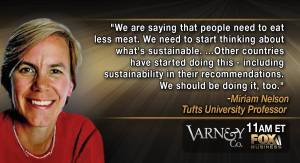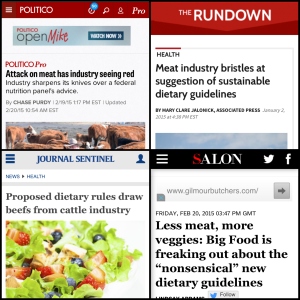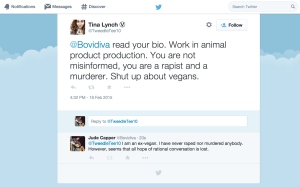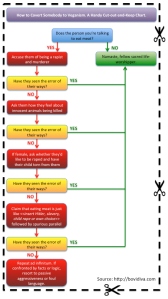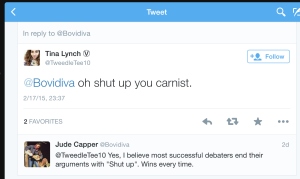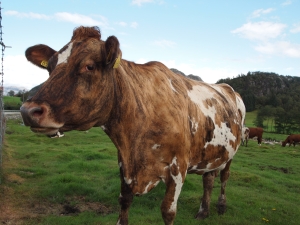
There’s no doubt that eating more fruit and vegetables is a positive idea. Nationally we still don’t hit our 5-per-day and lifestyle diseases are major causes of premature death. However, as Sainsbury’s redesigns aisles to try and convince shoppers to swap meat for vegetables and plans to issue extra loyalty points to customers choosing vegetarian foods, are we in danger of applying myopic solutions to a seriously complex issue?
Most people in developed countries eat more than the recommended 70 g of meat per day. If (and this is debatable) the researchers who claim that meat consumption is linked to lifestyle disease are correct, then reducing the amount that we eat may be a positive step. However, much of the justification for cutting meat consumption appears to be on the basis of reducing environmental impacts.
So how do we ensure that we eat a diet with a low carbon footprint? It’s very simple. Drewnowski et al. (2015) showed that grains, syrups and sugars had the lowest carbon emissions per kg of food – considerably lower than meat and dairy products. So we simply reduce the proportion of meat and increase the quantity of sugar that we eat each day. Just replace meat products with Mars bars and golden syrup and we’ll save the planet, albeit in conjunction with a spike in type II diabetes and a significant protein deficit.
If Sainsbury’s is determined to reward consumers for making healthier choices, why not do so based on the proportion of fruit, vegetables, lean protein and dairy purchased vs. cakes, biscuits and crisps; rather than giving extra loyalty points for vegetarian products? After all, a snickers bar or a packet of oven chips are both vegetarian, but meat-free foods are not inherently healthy choices. Furthermore, where do fish and dairy fit into the new regime? Given the low nutritional value of soy and oat juices per unit of greenhouse gas emissions compared to dairy, the potential for child malnourishment is considerable if plant-based foods are mis-sold as being nutritionally-equivalent to animal products.
Bipolar “A is bad, B is good” panaceas do nothing to improve consumer knowledge of food production or environmental impacts. Strawberries may have a lower carbon footprint than beef, but cannot be grown on a rocky slope in Scotland. Pork may have a relatively high water footprint, but almonds use even more. Lettuce is a great source of fibre, but provides very little additional nutrients per kg compared to meat. In my experience as an ex-vegan, the majority of vegan restaurant dishes are largely reliant on pasta or rice to bulk out the vegetables. Is this really a healthier choice than lean meat and vegetables? Given that many young people have little or no interest in cooking, is the presence of spiralised courgettes or cauliflower rice at the end of the aisle going to engender a sudden interest in all things gastronomic?
Most people’s diets are led (to a greater or lesser extent) by the foods available in the local supermarket, therefore retailers have huge opportunities to educate, encourage and improve our food choices. It’s not clear why Sainsbury’s would choose to launch this initiative, but it appears to be a box-ticking exercise, designed to address a single minor issue while ignoring the bigger problem.





